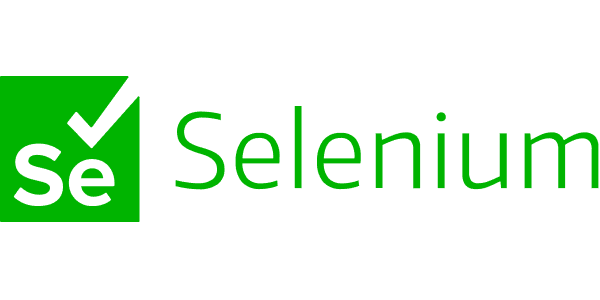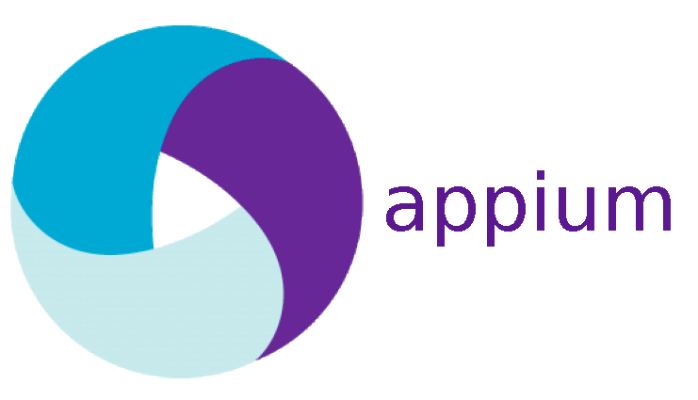Why Look For The Best DevOps Testing Tools

It is always important to lean about the best DevOps testing tools. These tools plays a crucial role in the DevOps methodology, aiming to automate and optimize the software delivery lifecycle. It emphasizes ongoing testing throughout development. This enables teams to quickly detect and fix issues, thereby improving software quality and accelerating delivery.
What is DevOps Testing?
DevOps testing involves continuous and automated testing integrated into every phase of the software development lifecycle (SDLC). Unlike traditional manual testing, which can be slow, DevOps testing uses automation to perform frequent and efficient tests. This allows for faster feedback, enabling teams to identify and resolve errors early in the development process.
What are DevOps Testing Tools?
DevOps testing tools are software solutions designed to streamline testing within a DevOps environment. These tools automate various types of testing, such as unit, integration, and performance testing. By integrating with CI/CD pipelines, they help teams deliver reliable, high-quality software quickly and efficiently.
Why DevOps Testing?

DevOps testing is crucial for several reasons:
- peed: Automated testing provides rapid feedback on code changes, allowing for faster releases and updates.
- Quality: Continuous testing ensures that software meets quality standards before deployment, minimizing the risk of defects in production.
- Collaboration: It promotes a culture of shared responsibility for quality, improving collaboration between development and operations teams.
- Efficiency: Automating repetitive tests allows teams to focus on more complex scenarios, boosting overall productivity.
Benefits of DevOps Testing
Adopting DevOps testing practices offers several advantages:
- Rapid Development: Automation accelerates the development process, enabling quicker delivery of features and fixes.
- Improved Reliability: Continuous testing improves test coverage and reliability, reducing issues in production.
- Enhanced Security: Automation helps ensure security standards and compliance throughout the development lifecycle.
- Cost-Effectiveness: Early defect detection and reduced manual testing efforts lower the costs related to post-release bug fixes.
Key Selection Criteria
- Simplicity: The tool should facilitate easy creation, execution, and maintenance of test scripts. It should be intuitive and user-friendly, allowing non-technical users to operate it with minimal training.
- Platform Support: Opt for a tool that supports multiple platforms (desktop, mobile, web), reducing the need for managing multiple tools across different environments and cutting down on costs and complexity.
- Documentation and Support: Look for comprehensive documentation and strong vendor support. Tools with tutorials, guidelines, and hands-on assistance are crucial for smooth implementation and troubleshooting.
- Reporting Capabilities: The tool should generate detailed, easily understandable reports that aid in decision-making, help identify issues, and improve test coverage.
- Integration with CI/CD Tools: Ensure that the tool integrates seamlessly with your CI/CD pipeline, which is key for maintaining efficiency in the development and release processes.
- Browser Compatibility: The tool should support cross-browser testing to guarantee a consistent user experience across different browsers and versions.
- Team Skill Level: Consider your team’s technical expertise. Choose a tool that aligns with their skills to reduce the need for extensive training.
- Automation and Parallel Testing: Select tools that support automation and parallel testing to increase efficiency, allowing for faster testing phases and quicker releases.
- Cost: Assess the pricing model, including initial and ongoing costs, to ensure the tool fits within your budget while fulfilling your testing needs.
- Flexibility and Scalability: The tool should be flexible to adapt to changing project requirements and scalable to support future growth.
Best DevOps Testing Tools
Selenium

Selenium is a popular open-source framework for automating web application testing across different browsers and platforms.
Key Features:
- Language Support: Selenium supports a variety of programming languages, including Java, Python, C#, Ruby, and Perl, giving testers the flexibility to write test scripts in their preferred language.
- Multi-Browser Compatibility: It enables testing across a range of web browsers like Chrome, Firefox, Safari, and Internet Explorer, ensuring comprehensive cross-browser coverage.
- Flexibility: Test cases created with Selenium can run on any operating system, including Linux, macOS, and Windows, offering high adaptability.
- Parallel Test Execution: Selenium supports parallel execution of test cases, which helps reduce overall testing time and enhances efficiency.
- Handling Pop-ups and Alerts: Selenium provides built-in methods for handling pop-ups and alerts that might appear during test runs, improving its automation capabilities.
- Large Community Support: It has an extensive and active community, offering plenty of resources, tutorials, and documentation for learning and troubleshooting.
- Playback and Record: Selenium IDE allows testers to record user interactions in a browser and play them back as automated tests, simplifying the creation of test cases.
Appium

Appium is an open-source automation framework designed specifically for testing mobile applications on both iOS and Android platforms.
Key Features:
- Automated Testing: Appium automates the testing process for native, mobile web, and hybrid apps across iOS, Android, and Windows platforms, streamlining the entire testing lifecycle.
- Support for a Wide Range of Mobile Platforms: It allows for testing across multiple operating systems, including iOS, Android, and Windows, all using a unified API.
- Easy Integration with Other Tools: Appium integrates seamlessly with various testing tools and frameworks, enhancing its capabilities for organizing and executing tests.
- Support for Emulators and Simulators: It supports testing on both real devices and emulators/simulators, providing flexibility in choosing the testing environment.
- Large and Active Community Support: Appium boasts a robust and active user community, providing ample resources and documentation for learning and troubleshooting.
- Cross-Platform Compatibility: It enables writing tests for multiple platforms using the same API, which improves code reusability and testing efficiency.
- Appium supports multiple programming languages, including Java, Python, JavaScript, C#, and Ruby. This flexibility allows developers to choose their preferred language for writing test scripts.
Mocha

Mocha is a JavaScript test framework that runs on Node.js and in the browser, enabling efficient asynchronous testing.
Key Features:
- Asynchronous Testing: Mocha simplifies testing of asynchronous code by providing an easy-to-use interface for managing callbacks, making it ideal for modern web applications.
- Flexible Reporting: It offers customizable reporting options, allowing users to define how test results are displayed, providing clarity and flexibility.
- Test Hooks: Mocha supports hooks like before, after, beforeEach, and afterEach, allowing developers to set up preconditions and clean up after tests, improving test organization.
- Sequential Test Execution: Tests can be run in a specific order, and Mocha handles uncaught exceptions, mapping them to the relevant test cases for better error tracking.
- Support for Multiple Assertion Libraries: Mocha is compatible with various assertion libraries, including Chai, giving users the freedom to choose their preferred assertion style.
- Browser and Node.js Compatibility: Mocha can execute tests both in Node.js and the browser, making it versatile for different JavaScript environments.
- Parallel Test Execution: It supports running tests in parallel, reducing the overall time needed to execute large test suites efficiently.
Docker

Docker is primarily a platform for containerization rather than a dedicated testing tool. However, it plays a key role in continuous testing. It provides consistent, lightweight environments for application evaluation within the DevOps process. Docker enables teams to build, ship, and run distributed applications efficiently.
Key Features Of Docker:
- Container Management: Docker allows users to manage application containers as a unified group, simplifying the processes of deployment and scaling.
- Collaborative App Assembly: It enables teams to collaboratively assemble applications from multiple components, fostering better teamwork among developers.
- Increased Efficiency and Consistency: By utilizing lightweight containers, Docker enhances the consistency and efficiency of application deployments across environments.
- Open-Source: Docker is an open-source platform, freely available for modification and distribution, promoting community contributions and innovations.
- Cross-Platform Compatibility: It supports various operating systems like Linux and Windows, ensuring consistent application performance across different environments.
- Lightweight Containers: Docker’s containers are lightweight, isolating applications and enabling concurrent execution of multiple environments without heavy resource consumption.
- Reusable Data Volumes: It provides reusable data volumes for persistent storage, improving performance testing and overall data management.
- Scalability: Docker supports the scalability of applications, allowing users to adjust resources easily according to demand.
Jenkins

Jenkins is an open-source DevOps tool designed to automate the various tasks involved in building, testing, and deploying software.
Key Features:
- Open-Source: Jenkins is a free automation server with a highly customizable nature, supported by community contributions that extend its capabilities.
- Automates All Types of Tasks: It automates various stages of the software development lifecycle. This includes building, testing, and deploying applications, streamlining the process.
- Wide Range of Plugins: Jenkins offers over a thousand plugins, enabling seamless integration with almost any tool in the CI/CD pipeline, enhancing its functionality and adaptability.
- Built-in Support for Source Control Management: It supports multiple version control systems, including Git, allowing easy integration of code changes into the development workflow.
- Easy Integration with Other Tools: Jenkins integrates effortlessly with numerous tools and technologies, providing a smooth and cohesive development pipeline.
- Distributed Builds: Jenkins can distribute build and testing tasks across multiple machines. This will reduce the overall build times and enhance efficiency by utilizing available resources.
- User-Friendly Web Interface: The web-based interface makes setup, configuration, and monitoring of builds and jobs intuitive and accessible.
- Pipeline as Code: Jenkins allows users to define build pipelines as code using Jenkinsfile, making workflows easier to manage and allowing version control for greater consistency.
[Want to learn more about best DevOps testing tools? Click here to reach us.]
Conclusion
In conclusion, selecting the right DevOps testing tools is essential for optimizing the software development lifecycle. Tools like Selenium, Appium, Mocha, Docker, and Jenkins each offer unique features that cater to different stages of testing, from automation and cross-platform compatibility to continuous integration and deployment. By integrating these tools into a well-structured CI/CD pipeline, teams can enhance testing efficiency, improve collaboration, and ensure faster, more reliable releases.
Additionally, leveraging Bobcares DevOps support services can further streamline your testing processes, providing expert guidance and resources tailored to your specific needs. Ultimately, the best tools and support are those that align with your project’s requirements and long-term goals.







0 Comments